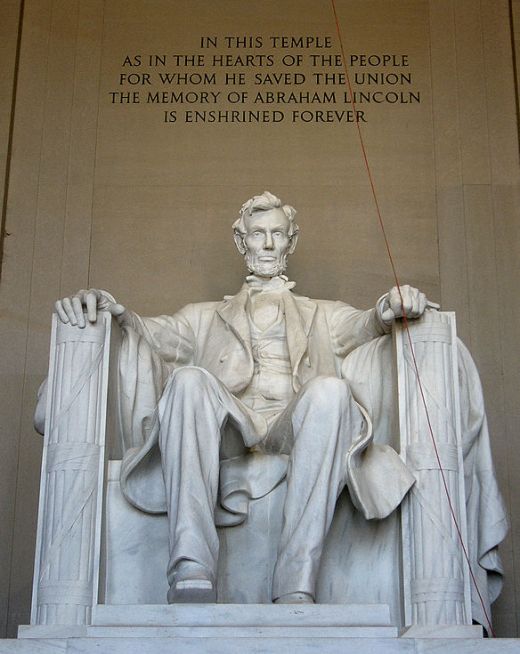Lincoln was fully aware that the Civil War was also a religious struggle. The enthusiasts on North side were empowered by primarily moral and religious motives.
Thomas March, Bishop of Rhode Island, preached to the militia: 'It is a holy and righteous cause in which you enlist ... God is with us ... the Lord of Hosts is in our side.'
As the war took its terrible toll, Lincoln certainly felt the spirit of guidance. 'I am satisfied that when the Almighty wants me to or not to do a particular thing, he finds a way of letting me know it.' He thus waited, as the Cabinet papers show, for providential guidance at certain critical points of the war. He never claimed to be the personal agent of God's will, as everybody else seemed to be doing. But he wrote: 'If it were not for my firm belief in an overriding providence it would be difficult for me, in the midst of such complications of affairs, to keep my reason in its seat. But I am confident that the Almighty has his plans and will work them out; and ... they will be the wisest and the best for us.' When asked if God was on the side of the North, he replied: 'I am not at all concerned about that, for I know the Lord is always on the side of the right. But it is my constant anxiety and prayer that I and this nation should be on the Lord's side. As he put it, 'I am not bound to win but I am bound to be true. I am not bound to succeed, but I am bound to live up to the light I have.'
Early in the war a delegation of Baltimore Blacks presented him with a finely bound Bible, in appreciation of his work for the negroes. He took to reading it more and more as the war proceeded, especially the Prophets and the Psalms. 'Take all of this book upon reason that you can, and the balance of faith, and you will live and die a happier and a better man.' 'This Great Book ... is the best gift God gave to man.' After reading the Bible, Lincoln argued within himself as to what was the best course to pursue.
Thus arguing within himself, Lincoln incarnated the national, republican, and democratic morality which the American religious experience had brought into existence - probably more completely and accurately than a man committed to a specific church. He caught exactly the same mood as President Washington in his Farewell Message to Congress, and that is one reason why his conduct in the events leading up to the war, and during the war itself, seems, in retrospect, and seemed so to many at the time - so unerringly to accord with the national spirit. Unlike Governor Winthrop and the first colonists, Lincoln did not see the republic as the Elect Nation because that implied it was always right, and the fact that the Civil War had occurred at all indicated that America was fallible. But, it fallible, it was also anxious to do right. The Americans, as he put it, were 'the Almost Chosen People' and the war was part of God's scheme, a great testing of the nation by an ordeal of blood, showing the way to charity and thus to rebirth.

